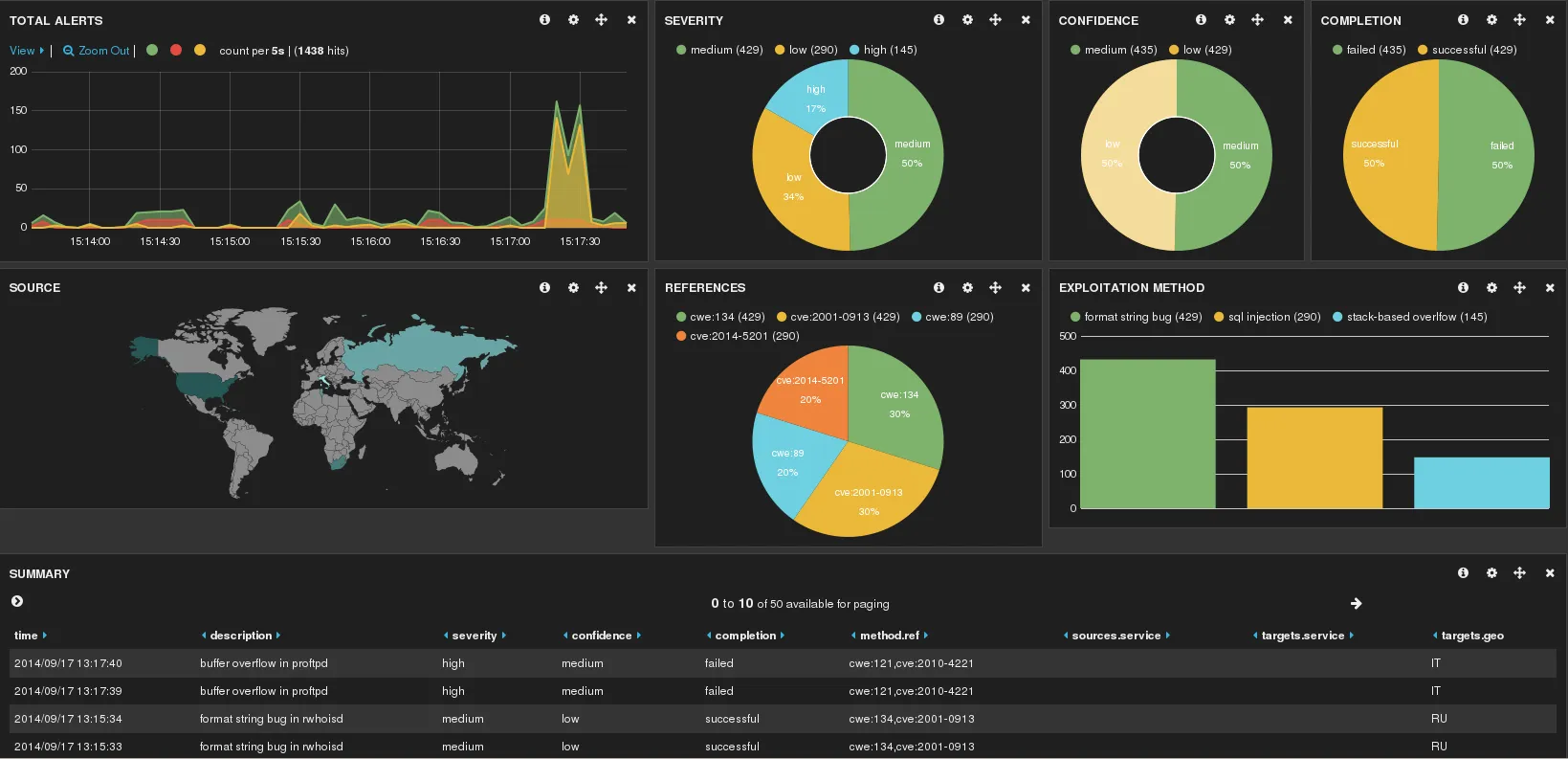Most people consider logging something nice to have; a supplement to the code that matters or something you add in order to debug a problem.
Having worked for the past year in a distributed microservices architecture I finally discovered what logging truly is: it’s Google Analytics for your code.
Think about this: the business asks you to track interesting behavior so it has the information it needs to make informed decisions. They want to know if a feature is driving in more customers, if a campaign is getting traction, if one solution is preferrable over another.
Shouldn’t you, as a professional, have the same understanding about the code you ship?
Day to day we need to be able to answer these sort of questions:
-
Did we receive the transaction receipt for PRODUCT-XYZ last night?
-
How much has the stock level increased for PRODUCT-ABC since last week?
-
At what time did we receive the unique number for SHIPMENT-123 from our provider? Can you check what that is?
Disclaimer: we’re mostly writing middleware that connects external services, so we don’t store much data on our own. We’re on one end of the logging spectrum: if we don’t log an incoming request that request has not happened. On the other hand if we were storing data on something like Datomic (which records plenty of metatada around transactions) we would have different logging requirements. The point remains the same, just think about something that you don’t store directly.
Then again, from a more technical but still business relevant point of view, we’d like to answer:
-
Did adding FEATURE-XYZ slow down our response time? By how much?
-
Are some parts of the system memory bound or cpu bound? How much buffer do we have before we hit the limits? Can we project what load would force us to increase those limits?
-
Where there any noticeable effects during the ABC-OUTAGE? What parts were effected? Can we trigger some alerts when we detect similar behavior before an outage occurs?
The list could be longer, these are just a few ideas. The point is, if you have anything similar to a Definition of done in your team, then you should definitely add “Implemented relevant logging metrics” to the checklist. Just like implementing automated tests for your code is important, adding appropriate logging delivers business value along with the code you ship.
Below is a list of things I learnt while refining the logging behavior of our system. The two most important realizations for me were:
-
Make log event explicits (by giving them a name)
-
Make the act of logging explicit (by passing a log around).
Both choices had a positive series of ramification that I will discuss in each section.
Tracking analytics means naming things
The major improvement in our logging infrastructure happened when we decided to use Riemann. On top of the many benefits Riemann has, it is very opinionated on the shape of the data it accepts. For example, it requires each entry to have a unique name (called a “service” in Riemann). That was a revolution for us. Much like Google Analytics, anything you want to track needs to have a name, so you can refer to it, observe it, query it, plot it, pinpoint it.
Leverage namespaced keywords
Clojure makes it extremely easy to give the things you log unique, memorable names thanks to namespaced keywords. Yes, Rich Hickey is right once again. For example:
(log/warn logger ::customer.update {:reason "Not found"})Assuming you’re logging this in (ns app.user) the resulting name for
this log entry would be :app.user/customer.update which makes it easy
both to filter for things in the same namespace and to search for a
memorable name.
Don’t rely on file line numbers for the things you want to log, name them. Line numbers change and have no context where as names are easy to search for, to remember, to graph and to reason about.
Use the same name with different states
This is again something derived from Riemann. At the beginning we logged things like this:
(if (healthy? system)
(log/info logger ::system.health.good)
(log/error logger ::system.health.bad {:reason (describe system)}))But after a while we changed this pattern to be
(if (healthy? system)
(log/info logger ::system.health)
(log/error logger ::system.health {:reason (describe system)}))Both events name are the same, so we can easily trigger an alert when something transitions from a good state to a bad state (or vice-versa). We can also have more general rules while the first pattern forces you to have lots of custom rules. Name the same things the same way, only change the logging level if you need to.
Log data, not strings
There’s a bunch of useful things you are likely to log once you discard the limitation of a legacy logging framework that forces your log data to be a String.
A complete log event should look something like:
{:service :user.profile/update
:level :warn
:time #inst "2016-01-01"
:description {:before-trasact 'a
:after-transact 'b}
:metric 100
:tags ['X-Request-Id 'goggles-enabled 'prerelease]
:host "localhost"}For example another good idea we got from Riemann is to attach a
:metric key to as many events as possible.
(log/info ::api.request {:metric (time req)}
(log/info ::parse.unsubscribers {:metric (count unsubscribers)}
(log/warn ::job.timeout {:metric (count retries)}
(log/warn ::heap.threshold {:metric (percentage-heap-used)}But that’s just one of the many examples. We’ve added extra fields like
:request-id to track a single operation across many services,
:execution-id to follow a code execution asynchronously, :features
enabled on that deployment, :customer-id to group by actions made by a
single user etc. etc.
Once you realize it’s all data the possibilites are endless.
Don’t answer a question: show the answer
This is not strictly about logging but it’s related. We ship all our logs to both Riemann (for realtime monitoring) and to Elasticsearch (for storage and querying).

Many of the questions asked at the beginning of the post require just a few searches on Elasticsearch to come up with a quick answer. But the obvious next step is to provide the business with graphs and plots that can answer their question without having to run a search manually. Kibana is very good at this and having events with a name (and a metric) makes it easy to show them graphically. You also start to choose the events you want to track, putting yourself in the shoes of your future self or the business and thinking about what you want to see displayed on a dashboard.
Keep visualization code and logging code in sync
A bonus feature we discovered: Kibana (and I’m sure many other tools) describes the visualizations as json and allows you to import them.
If you describe those visualization in a code project and add it as a
dependency, then you can cross link the :namespaced/keywords you use
in your logging code with the ones you reference in your visualizations.
So when you decide to rename/refactor one of the events, you don’t break
existing dashboards.
Logging performs a side effect and that’s nothing to be ashamed of
We try to be disciplined about the way we structure effectful code. We discovered through trial and error than having global state causes more problems than it solves and sneaking side effects into a function might make your life easier now but it’s inevitably going to harm you in the long run.
Instead of relying on a global logger instance, pass a Logger explicitly to the functions that need to perform logging.
Learn from the Java lesson
The situation that the Java ecosystem logging is in should make you think about what went wrong. Between the inhumane number of standards and the awkward xml or .properties files initialisation, using any of these tools requires hours (even days) of study and understanding all because of a fundamentally wrong choice at the bottom.
Java Logging wanted to be a transparent tool, a static class initialised somehow that works out of the box. It’s magic. And like all magic software sometimes it works but sometimes it doesn’t. A hit-and-miss magic wand is not what you need to build something reliable.
If you throw away all the assumptions about static initialisation and global singleton, all you’re left with is a dead simple interface:
(defprotocol Logger
(log [this msg]))Do you want a logger that prints to stdout?
(defrecord StdoutLogger [] Logger
(log [this msg] (println msg)))Do you want a logger that sends log in json format to ElasticSearch?
(defrecord ElasticSearchLogger [] Logger
(log [this msg] (http/post "elastic.domain" (json/encode msg))))Do you want it to be fully asyncronous using core.async?
(defrecord AsyncLogger [channel] Logger
(log [this msg] (async/>! channel msg)))Done. No magic at all.
Another problem you find in traditional logging frameworks happens when
you want to carry some context between logging calls. The classic
example is to attach a user-id value to all the methods invoked during
a request performed by a certain user. This is extremely useful so that
you don’t have to pass around all the information that you want to log
to all the subroutines that your main function invokes. It usually works
like this:
(log-framework/set-context! {:user-id "abc"})
;; much later, in a nested function
(log-framework/perform-log {:foo :bar}) ;; this contains {:user-id "abc"}If you pass around a logger explicitly this problem disappears. When you
want to pass contextual information you simply create a new Logger
that sets that information whenever you call it. It works just like
map works:
(defn map* [f logger]
(reify Logger
(log [this msg] (log logger (f msg)))))
(defn handle-user-request [logger user-id]
(let [logger* (map* #(assoc % :user-id user-id) logger)]
...)) ;; whenever logger* is used the user-id is automatically addedWhat about eliding certain types of logs in production vs deployments? Do you want to do that passing some flags in your xml configurations or you prefer to do it yourself? I prefer to write:
(let [logs (get-logs-from logger)]
(filter logs (and (namespace= :app/user) (priority= :warn)))
...)No need to learn the ways of a logging framework. It’s just data.
Test your logging
When you start to have business critical information in your logs you really need to test them. If you log the invoice you receive from SERVICE-XYZ before manipulating them and sending them to SERVICE-ABC, then you want to log the fact that you received them, otherwise you have no way to answer business questions like “Have we received any new invoices today?“.
Since logging is explicit and each log has a name, you can simply pass a TestLogger in your function under test:
(defrecord TestLogger [logs] Logger
(log [this msg] (swap! logs conj msg)))
(deftest logs-correct-data
(let [logger (TestLogger. (atom []))]
(fn-under-test logger {:invoice :data})
(is (= [expected-logs] (-> logger :logs deref)))))Capturing logs in your test can also help you test code that is, by its nature, hard to test: code that does not return any data, code that calls external services that are hard to mock, or asynchronous code. You can check for the presence of certain logs with the correct data rather than having to pass complex mocks and stubs everywhere in the system.
Don’t worry about your function signature
I once read a discussion about logging in Haskell as I was curious to see what happens to the function signatures if you decide to be explicit with the side effect. Do you end up constantly refactoring your function parameters when you add logging? It turns out this is not the case.
Pure functions should be pure. There’s no interesting information to log there. If you want to debug them, you can unit test them at any point because they have no code dependency. Data in, data out. If you want to log something, log outside of these functions.
Impure functions are impure already. They take some parameters like db
or connection or executor. What I end up doing in Clojure is group
them in a map called deps, dependencies, and pass it as the first
parameter.
(defn transact-stuff [{:keys [conn logger executor] :as deps} stuff]..)They can come from your
system map or other
stateful parts of your program, but it’s usually convenient to keep them
grouped together. They tend to change a lot and it’s not uncommon having
to add yet another db parameter because you need to transact it in
another storage or place it in a queue as well. If you squint hard
enough this looks a lot like Haskell’s equivalent solution, a monad
transformer
stack.
Clojure has one more advantage that is baked in and enthusiastically encouraged in the language: make your functions return data. Lots of data. All the data you need. I’m finding more and more that I want to return exhaustive data representation of all the computation happening inside the function and it’s the job of the consumer to pick out what it’s interested in.
Which one do you prefer?
(defn import-from-csv [..])
;;>
:ok
(defn import-from-csv [..])
;;>
{:processed 23
:skipped 22
:took 3400
:reason [[...]]
:response [[...]]}If you can describe with a data structure what happened inside the function the you don’t need to pass a logger to that function at all. You can simply log in the parent function. Or in the parent’s parent if you keep assembling a big data structure that bubbles up to the surface where the side effects are performed. This is a technique borrowed from working with Datomic: rather than passing down the connection to each function, assemble the transaction’s data structures bottom up, and finally perform the transaction in the top level function. That way you’re closer to functions just take data and return data, making them easier to test and to reason about.
Full code reference
(ns example.log)
(defprotocol Logger
(log [this msg]))
(defn map* [f logger]
(reify Logger
(log [this msg] (log logger (f msg)))))
;; Convenience fns. You probably want trace, debug and failure as well. And add :timestamp, :host etc.
(defn info [logger service desc]
(log logger {:service service :level :info :description desc}))
(defn warn [logger service desc]
(log logger {:service service :level :warn :description desc}))
(defn error [logger service desc]
(log logger {:service service :level :error :description desc}))
;; Examples
(defn update-profile [logger user]
(if (some? user)
(info logger ::profile.update user)
(warn logger ::profile.update {:reason "Not found"})))
(defn handle-user-request [logger user-id]
(let [logger* (map* #(assoc % :user-id user-id) logger)
user (comment (get-user-from-db))]
(update-profile logger* user)))
;; Some loggers. Comment them if you don't have the appropriate dependencies
(defrecord StdoutLogger [] Logger
(log [this msg] (println msg)))
(require '[clj-http.client :as http]
'[cheshire.core :as json])
(defrecord ElasticSearchLogger [] Logger
(log [this msg] (http/post "elastic.domain" (json/encode msg))))
(require '[clojure.core.async :as async])
(defrecord AsyncLogger [channel] Logger
(log [this msg] (async/go (async/>! channel msg))))
(defn try-async []
(let [{:keys [channel] :as logger} (AsyncLogger. (async/chan))]
(info logger ::some.data "Hello async")
(async/go (println (async/<! channel)))
42))
;; Test logs
(require '[clojure.test :refer :all])
(defrecord TestLogger [logs] Logger
(log [this msg] (swap! logs conj msg)))
(deftest logs-correct-data
(let [{:keys [logs] :as logger} (TestLogger. (atom []))]
(handle-user-request logger 123)
(is (= [[::profile.update 123]] (map (juxt :service :user-id) @logs)))))






